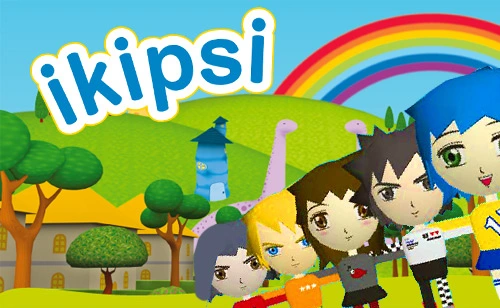Virtual worlds and the successor to the barcode
IKIPSI doesn’t mean anything, but it sounds good. IKIPSI is a project run by the Adlershof company Software Achkar and is intended to help children in Japan to learn English. Also in museums modern information and communications technologies have added to the forms of presentation.
On Okinawa Island children learn differently than in Germany. The Okinawa Prefecture extends over more than 160 islands in the southwest of Japan, and not every island has a school. For this reason the children are to learn in a virtual classroom, on a platform provided by the Berlin company Software Achkar. Set up in Karlsruhe in 1989 this software house initially worked for the industry, later received a growing number of assignments from authorities and local governments, and now specialises in portable software focusing on data security and data protection, with branches in Australia and Japan. Often employees slip into the role of hacker and attempt to infiltrate and manipulate their customers’ networks. The results of these attacks are sent to the customers, who include Siemens, Thyssen-Krupp, and the Western Australian government.
Also the proprietor Najib Achkar and his personnel utilise this experience for the IKIPSI project. The virtual worlds of IKIPSI are designed for children to meet, learn, and play. Initial tests at a trade fair in Kobe, Japan, proved highly successful. In the virtual classroom children can register for particular subjects and attend classes with other children from all over the world. The lessons are given in real time, and every child and even the teachers can create their own avatar. During lessons the children can interact with the teacher, can speak, read and write. And because children learn best by playing, every virtual world includes art galleries, cinemas, theatres and sporting venues. Some examples of these worlds include one designed like a cartoon and generated in Australia, another in a delicate princess pink, or another with dinosaurs. It is also possible for brands like Disney, Barbie or the Simpsons to evolve their own worlds under licence. The learning modules are generated in Berlin and Japan.
The state museums of Berlin, the Adlershof society for applied computer sciences GFaI, and EVA Conferences International will be hosting an annual forum providing insights into practical methods of information technology with the focus on reconstruction, storage, and retention for museums, hypermedia, databases, and archives. Today museums, libraries and archives function as axes for the transfer of predominantly digitally encoded media. In services, research, and administration they meet their challenges with a wide range of electronic information and communications technologies.
The Poseidon project, a joint venture with the Humboldt University study group for computer science in education and society, is working on the development of various RFID based solutions that can be used in museums and public institutions with a large number of visitors. Poseidon describes “position- and context-sensitive museum information systems for the demonstration of RFID potential”, and RFID is the abbreviation of “radio frequency identification”, a technology that identifies also invisible objects without having to touch them. Greatly simplifying the capture and storage of technical details RFID is considered to be a potential successor to the barcode and can store considerably more information. This could be used to enhance a museum’s audio guide system. Visitors using an audio guide in museums today can generally listen to recordings played back in a particular order. One of the goals of the Poseidon project is to programme this device to know where the visitor is standing and to target his potential “needs”.
Rico Bigelmann
Links:
www.software-achkar.de
www.gfai.de
www.eva-conferences.com
www2.informatik.hu-berlin.de/~blunk/pdf/ps_poseidon.pdf
